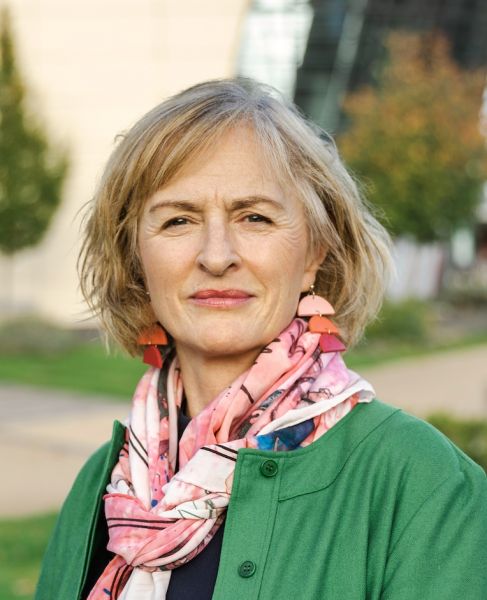This event is in the past. The keynote and session presentations for the conference are available here.
Royal College of Physicians
11 St Andrews Place
London NW1 4LE
This one-day conference brings the SCONUL community together face-to-face for the first time since the pandemic. While it includes formal sessions, the focus will be on members coming together to discuss common experiences and to share learning, and to collaborate on planning for the future. We will reflect on learning from the Libraries after Lockdown programme and consider the opportunities and challenges facing the sector.
Who should attend? The conference is open to all staff at SCONUL member institutions.
Structure: The day will include a mix of formal sessions and member-driven workshops with plenty of opportunities to catch up with colleagues.
Timing: The conference opens with a networking breakfast from 9-10am with the formal proceedings running from 10am until 4.30pm.
In the event of the conference being cancelled due to a national rail strike or similar circumstance, we will reimburse delegate fees. We will also seek to rearrange the date of the conference.
Keynote speakers:

Margaret Ayers is Director of Human Resources and Organisational Development at Canterbury Christ Church University and Vice-Chair of Universities Human Resource
 Professor Susan Orr, Pro Vice-Chancellor Education at De Montfort University and Chair of the OfS Blended Learning Review Panel.
Professor Susan Orr, Pro Vice-Chancellor Education at De Montfort University and Chair of the OfS Blended Learning Review Panel.
Programme
| 09.00 | Networking breakfast |
| 09.00 | Registration |
| 10.00 | Welcome from SCONUL Co-chairs |
| 10.10 | Keynote: Hear from Professor Susan Orr, Chair of the OfS review of blended learning on the shape of learning and teaching post-Covid |
| 11.00 | Coffee break |
| 11.30 |
Parallel sessions:
(a) Artificial intelligence. What do libraries need to know about AI, its potential impacts on, and solutions for, their libraries and developing uses across their institutions. SCONUL and Jisc have been developing a project to explore these questions and this inaugural workshop will provide an opportunity to define and shape the project.
(b) Beyond transitional agreements. This workshop will explore on the shape of content provision post transitional agreements across the range of teaching and learning and research materials, including open access and subscription models. We will look beyond a three year planning horizon, with a particular focus on budget and resource planning. Led by Director of Student and Library Services at Anglia Ruskin University; Liam Earney, Managing director of higher education and research at Jisc; and Caren Milloy, Director of licensing at Jisc.
(c) Collaboration on collections. Developments in library technologies such as RapidILL and Jisc's Library Hub, the growth of open access in the UK and controlled digital lending are all enablers to greater collaboration across the sector on collections. This workshop will explore the opportunities and drivers for greater collaboration. Led by Jane Saunders, Associate Director: Content & Discovery, University of Leeds and Nick Woolley, Director of Library and Campus Services at Sheffield Hallam University. |
| 12.30 | Lunch |
| 13.30 |
Community learning workshops These sessions will be open, community-led discussions which will provide an opportunity for participants to share experiences, practice and questions based on the learning circle principles of non-hierarchical, open sharing of experience to improve practice.
A. The sustainable library 75% of UUK member institutions have now committed to net zero targets and libraries are actively exploring how their own practices can be adapted to help address the climate crisis, including addressing challenges such as legacy buildings. Members are invited to come together to discuss the actions and approaches they are taking to deliver and to consider scope for shared and collaborative action.
B. Rethinking recruitment in an age of scarcity The library community faces twin challenges for its recruitment: how do we attract a more diverse workforce which better reflects the communities we serve, and in an age of scarcity where recruitment is challenging across HE generally, how can we attract, recruit and retain a workforce with the skills we need? Members are invited to come together to share their experiences, to discuss what steps they have taken to try and meet these challenges (successful or otherwise) and to consider what scope there is for action as a community to support each other and to make a difference.
C. Virtual and physical library spaces post pandemic As the pandemic recedes and we reach clearer water on institutional approaches to blended learning and teaching and more clarity on student behaviours post pandemic, how might these changes shape library spaces and services? Members are invited to share their learning and practice on developing integrated physical and virtual library spaces, and meet the needs of users. |
| 14.30 | Coffee |
| 14.50 |
Community of Interest group sessions
|
| 15.30 |
Keynote: Facing the Staff Recruitment and Retention Challenges in 2023
Margaret Ayers, Vice-Chair, Universities Human Resources |
| 16.15 | Wrap up |
| 16.30 | Close and departure |





